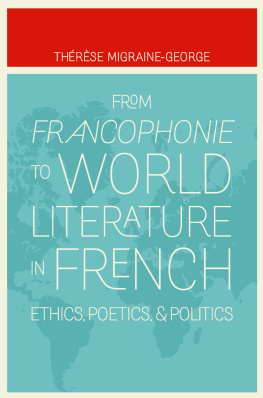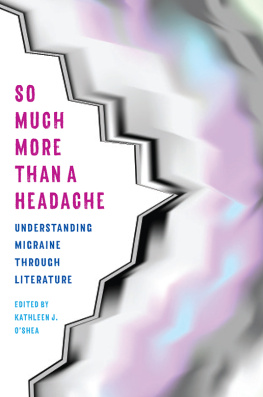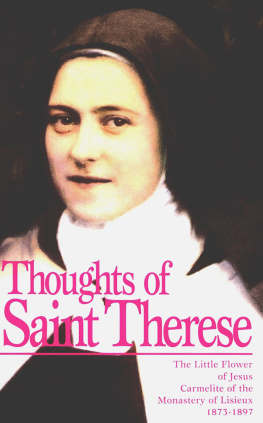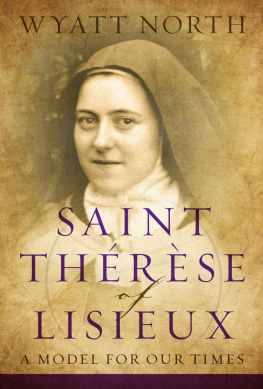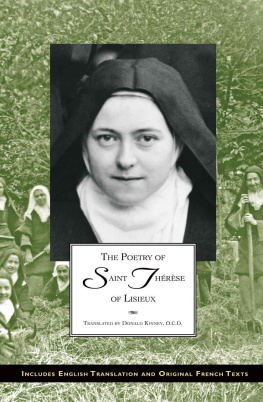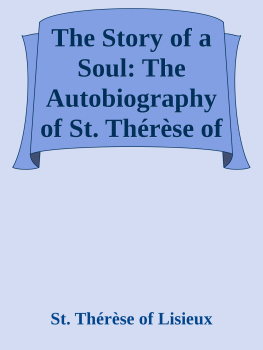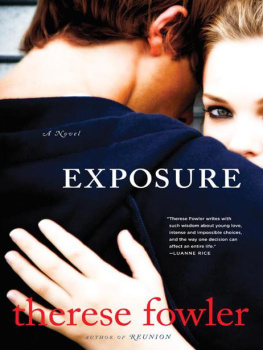Thérèse Migraine-George - From Francophonie to World Literature in French
Here you can read online Thérèse Migraine-George - From Francophonie to World Literature in French full text of the book (entire story) in english for free. Download pdf and epub, get meaning, cover and reviews about this ebook. year: 2018, publisher: University of Nebraska Press, genre: Politics. Description of the work, (preface) as well as reviews are available. Best literature library LitArk.com created for fans of good reading and offers a wide selection of genres:
Romance novel
Science fiction
Adventure
Detective
Science
History
Home and family
Prose
Art
Politics
Computer
Non-fiction
Religion
Business
Children
Humor
Choose a favorite category and find really read worthwhile books. Enjoy immersion in the world of imagination, feel the emotions of the characters or learn something new for yourself, make an fascinating discovery.
- Book:From Francophonie to World Literature in French
- Author:
- Publisher:University of Nebraska Press
- Genre:
- Year:2018
- Rating:5 / 5
- Favourites:Add to favourites
- Your mark:
- 100
- 1
- 2
- 3
- 4
- 5
From Francophonie to World Literature in French: summary, description and annotation
We offer to read an annotation, description, summary or preface (depends on what the author of the book "From Francophonie to World Literature in French" wrote himself). If you haven't found the necessary information about the book — write in the comments, we will try to find it.
From Francophonie to World Literature in French — read online for free the complete book (whole text) full work
Below is the text of the book, divided by pages. System saving the place of the last page read, allows you to conveniently read the book "From Francophonie to World Literature in French" online for free, without having to search again every time where you left off. Put a bookmark, and you can go to the page where you finished reading at any time.
Font size:
Interval:
Bookmark:
From Francophonie to World Literature in French
From Francophonie to World Literature in French

2013 by the Board of Regents of the University of Nebraska
All rights reserved
Library of Congress Cataloging-in-Publication Data
Migraine-George, Thrse.
From francophonie to world literature in French: ethics, poetics, and politics / Thrse Migraine-George.
pages cm
Includes bibliographical references and index.
ISBN-13: 978-1-4962-0924-5 (electronic: e-pub)
ISBN-13: 978-1-4962-0925-2 (electronic: e-mobi) 1. French literatureForeign countriesHistory and criticism. I. Title.
PQ 3809. M 53 2013
840.9dc23 2013012712
Set in Scala by Laura Wellington.
The publisher does not have any control over and does not assume any responsibility for author or third-party websites or their content.
Acknowledgments
I would like to thank the Charles Phelps Taft Memorial Fund and Research Center at the University of Cincinnati for the various grants and fellowships that allowed me to complete this project. At the University of Nebraska Press I am grateful to Kristen Elias Rowley and Joeth Zucco for their commitment to my book project and consistent editorial support, and I wish to thank Bojana Ristich also for her rigorous copyediting of my manuscript. I am indebted to several of my colleagues at the University of Cincinnati who helped me through the writing of this book: Jana Braziel, Janine Hartman, Lowanne Jones, Kathryn Lorenz, Jeff Loveland, and Catherine White all read parts of the manuscript and provided precious feedback. Particular thanks go to Mildred Mortimer, who has been ever so generous with her time and advice, and to Myriam J. A. Chancy for her friendship and many inspiring conversations. Finally, I wish to thank Becky Bridgman for her caring support. I dedicate this book to our amazing daughter, Emma: may you grow up in a beautiful and solidary world ruled only by our boundless imaginations.
Introduction
Francophonie and Littrature-Monde , Friends or Foes?
Literature, French, and the World
This book looks at how contemporary French-speaking writers call to replace the designation Francophone literature by littrature-monde en franais (world literature in French) points to French and Francophone literary studies as a site of renewed transnational debates on issues of identity, ethics, and aesthetic universality. In 2007 the publication in the French newspaper Le Monde of a manifesto titled Pour une littrature-monde en franais (Toward a World Literature in French) and signed by forty-four writers from various parts of the French-speaking world, including France, triggered a wealth of international conferences, newspaper articles, and scholarly publications enthusiastically embracing or sternly disputing these writers proclamation of the end of Francophonie and the concomitant birth of littrature-monde en franais (Barbery et al. 2010, 113). peripheral field in French academia, this terminological debate also foregrounds ongoing transatlantic discussions on literary ethos and taxonomy, on the practice, status, and function of literature.
These new theoretical debates frame my close readings of works by several contemporary French-speaking writersTierno Monnembo, Nina Bouraoui, Hlne Cixous, Marie NDiaye, Maryse Cond, and Lyonel Trouillotwho straddle continents and express a clear resistance to being labeled Francophone writers. Their works elude dogmatic categories, be they ethnic, sexual, or stylistic. These writers explore the writing process itself as a moving space of cross-cultural interrogation, multifarious affiliations, and creative dissidence. I argue that it is precisely by defending the aesthetic autonomy of their work that they posit literature as a site of ethical responsibility, conceived both as unconditioned and unconditional opening to the world and as engagement with concrete modes of alterity. The works I examine here thus illustrate what Kwame Anthony Appiah calls partial cosmopolitanism at the juncture of local allegiancesto a culture, a nation, or a specific communityand loyalty to all of humanity, or, as Appiah also puts it, universal morality (2007, xvixviii). My book aims to show that world literature in French, which challenges the ideological and institutional tenets of Francophonie, constitutes a significant pretext for probing not only the fictions of identity but also the ethical challenges created by a cosmopolitan world in which local identities are being questioned by others need for cultural recognition and understanding.
While stressing literature as a borderless or worldly practice, the proponents of littrature-monde are careful not to reinstate a literary homogeneity that would subsume all differences and argue for a decentered approach to literature. They reject an exclusively metropolitan conception of French and the leveling of a history that uniformly collapses writers from former colonizing and colonized nations within an allegedly color-blind French Republic of Letters.
Rather than simply endorsing littrature-monde as the groundbreaking adventor birthof a brave new literary world, however, my study proposes to put forth the fruitful complexity of the debates fostered by the manifesto. By pulling writers out of the regional and continental frameworks to which they are typically confined, especially those set up by the fault lines of African and Caribbean studies, and by looking simultaneously at these writers aesthetic and political agendas, I argue that the sometimes heated debate between the proponents of Francophonie and the champions of littrature-monde is not simply a querelle des Anciens et des Modernes , a clash between an established category and a new school of thought; rather, it highlights the ever-increasing mobility of literary and cultural producersfor example, a great number of African and Caribbean writers now live and publish in Europe and North Americaand the concomitant intricacy of literary aesthetics that strive to account for rhizomatic relations between the local and the global, the particular and the universal. In their introduction to the collective volume French Global: A New Approach to Literary History , Susan Suleiman and Christie McDonald state that literature in French, at every stage of its history, has been informed by global issues of cultural multiplicity, migration, and diaspora. Likewise, my study argues that the notion of littrature-monde, which foregrounds contemporary writers cross-cultural experiences and transformations, (re)places negotiations with otherness and boundary crossings at the very center of French literary history (Suleiman and McDonald 2010, x).
In an article that traces the affiliation of littrature-monde back to douard Glissants Tout-monde a seminal notion in Caribbean and literary studies at largeEric Prieto sees the manifesto as a reaction to changes in the global cultural marketplace,... more of a symptom than a movement, more an acknowledgment of a state of affairs than the bold new departure it claims to be (2010, 112). For Prieto, Glissants Tout-monde underscores the importance of finding a third path between the two main identitarian threats that have emerged in the era of globalizationessentialism and homogenization, thereby allowing for a much-needed reconceptualization or reframing of the postcolonial condition (2010, 117, 120) that staves off abstract universalism and narrow militantism and that stresses global exchanges, hybridization, and interdependence. While the manifesto may be part of a shrewd marketing campaign (Prieto 2010, 111), littrature-monde similarly points to literary studies in French as a teeming space of reflection on literature and the world, literature in the world, and the world in literature. Moreover, it resonates with ongoing discussions among writers and scholars who have long challenged the national framing of literary studies and privileged instead comparative and transnational approaches. The debates surrounding Francophonie and littrature-monde can therefore be seen as being attuned to the issues raised by many contemporary Anglophone theorists in particular, who have set out to reconceptualize world literature from the perspectives of postcolonial criticism and globalization.
Next pageFont size:
Interval:
Bookmark:
Similar books «From Francophonie to World Literature in French»
Look at similar books to From Francophonie to World Literature in French. We have selected literature similar in name and meaning in the hope of providing readers with more options to find new, interesting, not yet read works.
Discussion, reviews of the book From Francophonie to World Literature in French and just readers' own opinions. Leave your comments, write what you think about the work, its meaning or the main characters. Specify what exactly you liked and what you didn't like, and why you think so.

